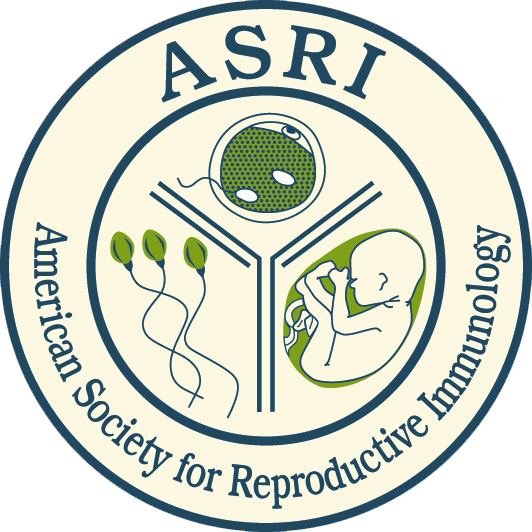The American Society forReproductive Immunology |

Michelson Prize and Grants in Reproductive Biology
Found Animals is proud to announce The Michelson Prize and Grants in Reproductive Biology. For complete details and applications, please visit www.michelsonprizeandgrants.org.
The Michelson Prize
The Michelson Prize is an incentivized prize challenge that will award $25 million to the first entity to provide Found Animals with a low-cost, permanent, nonsurgical sterilant for male and female cats and dogs. The prize-winning product will have, at a minimum, the following characteristics:
- Single-dose, permanent, nonsurgical sterilant
- Safe and effective in male and female cats and dogs
- Ablates sex steroids and/or their effects
- Suitable for administration in a field setting
- Viable pathway to regulatory approval
- Reasonable manufacturing process and cost
For further details, view the Michelson Prize Criteria.
Scientists interested in pursuing the Michelson Prize are encouraged to apply for a Michelson Grant of up to $250,000 per year to fund their research. Michelson Grants are intended to support research with the potential to develop a product worthy of the Michelson Prize; however, projects may be considered for the Michelson Grants if they do not address all of the Prize criteria (e.g. address only cats or dogs, address only male or female, etc.) if the proposed technology promises a significant improvement over existing approaches. We encourage applicants to review the process for applying for the Michelson Prize prior to submitting a letter of intent for a Michelson Grant, in order that the data obtained may later support a Prize application.
Michelson Grants in Reproductive Biology
Found Animals offers Michelson Grants of up to $250,000 USD per year for up to three years of funding for research in pursuit of a single-dose, permanent, nonsurgical sterilization product or technology for use in male and female dogs and cats. As a mission-driven and product-focused program, the Michelson Prize & Grants funds research based on merit rather than a fixed approval rate. To date, we have approved over 30% of proposals submitted and have committed over $15 million to nearly 40 approved projects across the globe.
Michelson Grant Funding Criteria
To qualify for a Michelson Grant, a proposed project must pursue a technology, mechanism, or pathway representing an innovative approach to nonsurgical sterilization. Investigators are encouraged to submit for “proof of concept” studies in cell culture or rodents (in certain cases), and/or in dogs and cats.
When developing a potential approach, applicants should consider the program’s goal of bringing to market a low-cost, permanent, nonsurgical sterilant or sterilants that will have a maximum impact in addressing populations of animals driving shelter intake. Proposed research is not required to generate results that meet all of the Michelson Prize criteria in order to be funded; however, strong preference will be given to projects with the potential to produce a prize-winning product or technology, and approaches must represent a significant improvement over existing products. We encourage applicants to review the process for applying for the Michelson Prize prior to submitting a letter of intent for a Michelson Grant, in order that the data obtained may later support a Prize application. Grant recipients are eligible to make claims for the Michelson Prize in the event that their research generates a product or technology that meets all the criteria.
Applicants should take note of newly refined Michelson Grant funding guidelines, which were updated in August 2016:
-
Approaches targeting hypothalamic neurons will be considered by scientific reviewers only if:
- investigators have convincing preliminary data demonstrating that the proposed construct can cross the blood:brain barrier (BBB), achieve cell-specific targeting, and exhibit target cell inactivation/inhibition/blocking/death. Rodent experiments with an aim to target hypothalamic neurons should not be proposed, or should be minimal; rather, proposed experiments should involve dogs and/or cats, since efficiency and safety of constructs crossing the BBB may vary by species.
- investigators are proposing to target sites known to be located on hypothalamic cell projections in the median eminence, which is outside of the blood:brain barrier [EX: kisspeptin receptors (GPR54) on the GnRH neuron processes]. Investigators must still provide preliminary data demonstrating that the proposed construct can achieve cell-specific targeting and exhibit target cell inactivation/inhibition/blocking/death.
- Approaches to immunocontraception will not be accepted in proof of concept rodent models; rather, these approaches must be proposed using dogs and/or cats. Further, approaches to immunocontraception in dogs and/or cats must include preliminary data in these species showing an antibody and/or cellular immune response to the target antigen, some preliminary efficacy in suppressing reproduction, and basis for the hypothesis that the treatment will have a long-term effect in both males and females following a single injection.
- Approaches using targeted cytotoxins to destroy discrete populations of cells must demonstrate preliminary data (in vitro or in vivo) demonstrating targeting efficiency, toxin uptake, and effect.
The Michelson Prize & Grants is an international program open to any entity, including academic institutions, biotechnology firms, research institutes, and well-qualified individuals or groups. We encourage applications from scientists from a wide range of disciplines, including, but not limited to, biology, bioengineering, biotechnology, cell biology, endocrinology, gene silencing, immunology, materials science, nanotechnology, neuroscience, pharmacology, reproductive biology, and theriogenology.
